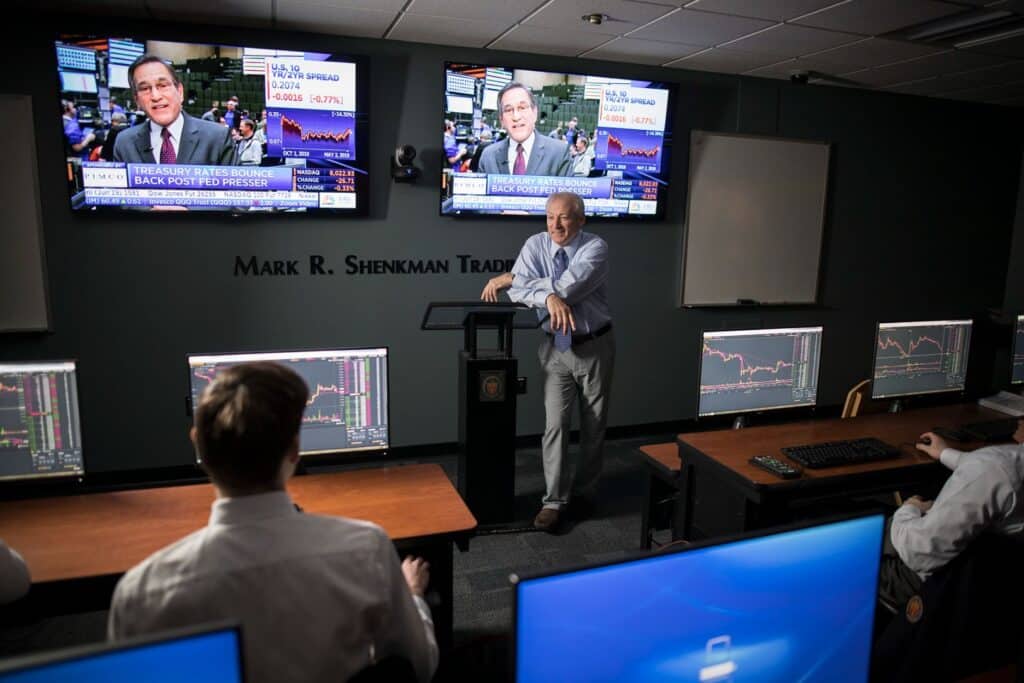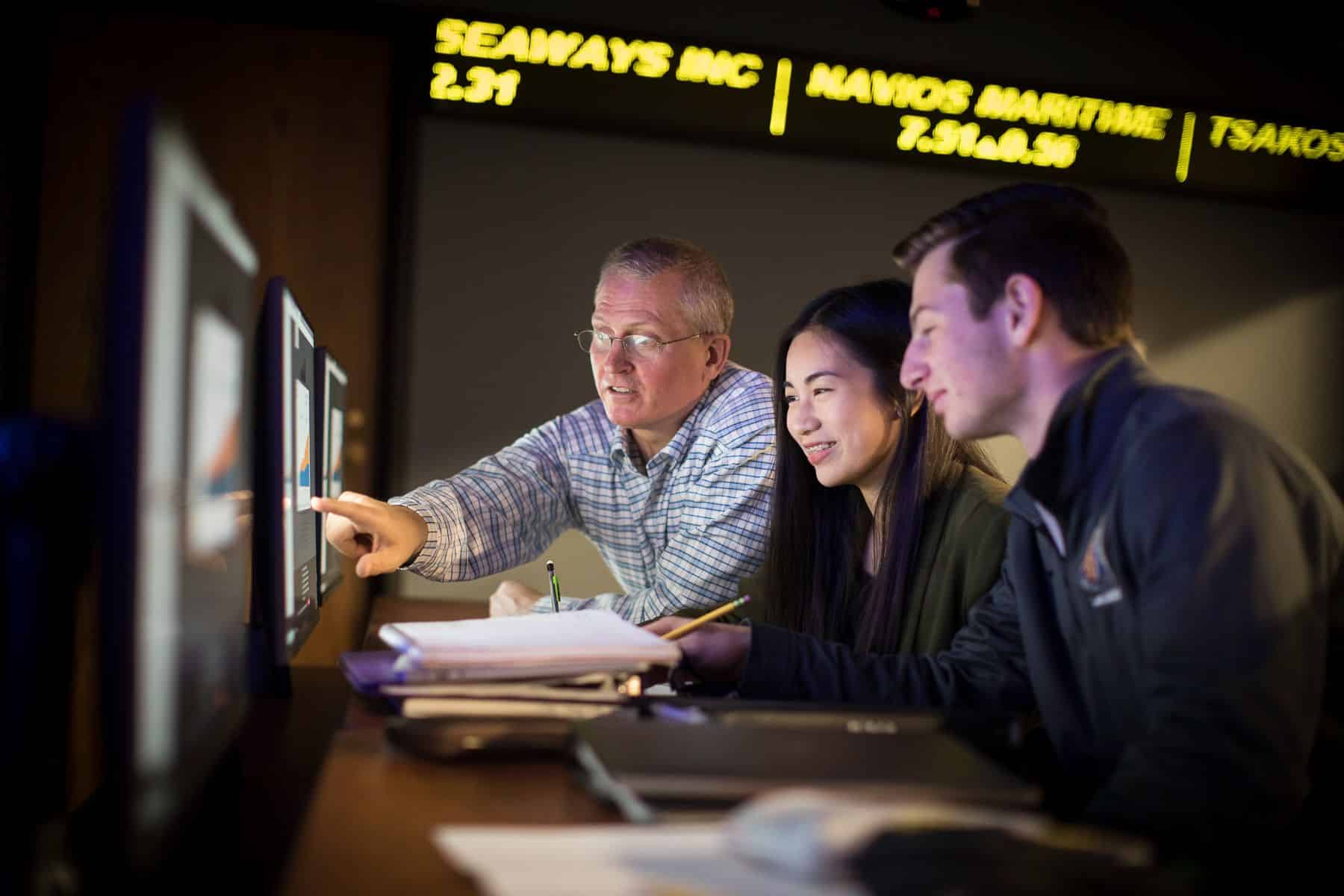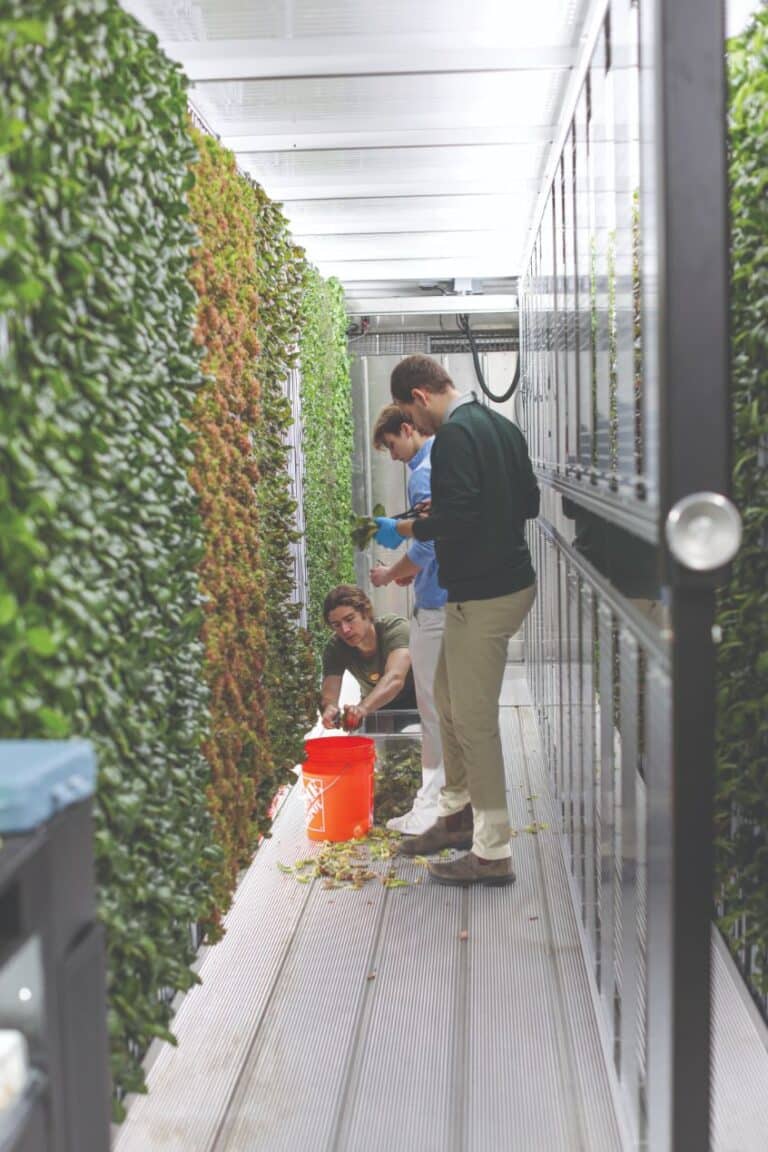One could argue there is nothing more important than financial know-how in this day and age. Having a sense of how the business world works benefits all of us, whether we own our own business or work for someone else. Wilbraham & Monson Academy’s Center for Entrepreneurship, Economics & Finance (CEEF) provides students the opportunity to learn real-world critical thinking and entrepreneurial skills, while creating a foundation for business, finance or entrepreneurial endeavors in the future.
Students enrolled in CEEF courses use the state-of-the-art Mark R. Shenkman Trading Center, as well as WMA’s computer lab to gain experience in researching, presenting and collaborating on projects to enhance their understanding of the global financial environment. WMA’s showcase facility houses 16 computer stations with monitor displays, two 70-inch LCD monitors and an LED dynamic stock ticker. Students who complete at least three CEEF courses earn a CEEF certificate upon graduating.
Jim Irzyk, chair of the department, has earned national recognition as the recipient of Distinguished Educator by Next Gen Personal Finance. He is the faculty advisor for the Financial, Entrepreneurship & Business Society, and he helped an all-female student team finish in second place at the Massachusetts Personal Finance Challenge in 2023. He has seen first-hand how this unique program sets students up for success.
“We aim to create future leaders who investigate opportunities for intellectual growth, integrate by seeking intercultural connections, and innovate by practicing critical reasoning and entrepreneurial thinking,” says Irzyk. Students at WMA can choose from AP macroeconomics, AP microeconomics, the business of sports, entrepreneurship, financial planning, honors behavioral finance, social entrepreneurship, portfolio management, stock market analysis and introduction to economics. Unique to WMA is the school’s student investment seminar. Students research and present actual investment strategies to the WMA Investment Committee. Last year, students successfully gained approval from the committee for an investment in three stocks (Microsoft, UnitedHealthcare and Nvidia).

Combining decades of experience and seven degrees among them, Irzyk and the other two CEEF teachers are experts in their fields.
Gayle Hsiao has an extensive background in entrepreneurial education and teaches courses in entrepreneurial studies. Hsiao developed The Global EcoLearn Project. Her CEEF students create opportunities for the use of wood products harvested from Academy woodlands and oversee their development, production, marketing and sales. Hsiao has also adapted her entrepreneurship curriculum for the Nuts, Bolts & Thingamajigs Summer Manufacturing Camps founded by John Ratzenberger. NB&T now uses her curriculum and lesson plans.
Erik Kindblom teaches AP Economics among other duties in the Center for Entrepreneurship, Economics & Finance department. He has previously served as dean of academics and institutional analysis, overseeing the academic progress of academy students. Kindblom holds an undergraduate degree in economics with a minor in mathematics and a graduate degree in environmental management and policy. His professional experience prior to joining the Academy was in energy management and policy, specifically the areas of energy efficiency, renewable energy and utility regulation.
Outside the classroom, The Finance, Entrepreneurship & Business Society (FEB) is a student-run organization that promotes financial literacy, business, economics and entrepreneurship among students, faculty and members of WMA and the local community. Students attending WMA also have opportunities to attend speaker series, visit colleges and universities, and participate in business and finance competitions.
“Our courses teach students how to think and act like entrepreneurs,” says Irzyk. “The goal is to provide students with knowledge and resources to understand everyday economic language, policies and their relationship to finance and business decisions.”
IN PARTNERSHIP WITH
Wilbraham & Monson Academy
423 Main St., Wilbraham, MA
413-596-6811
wma.us




